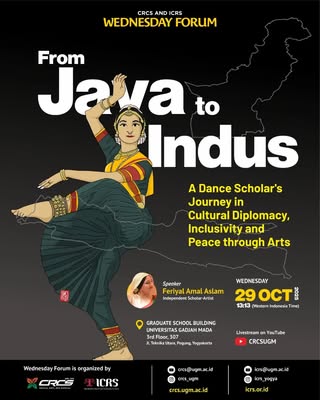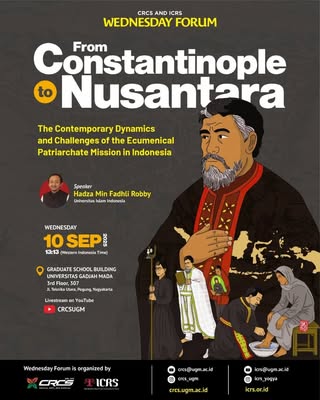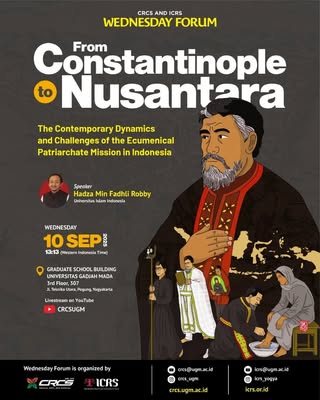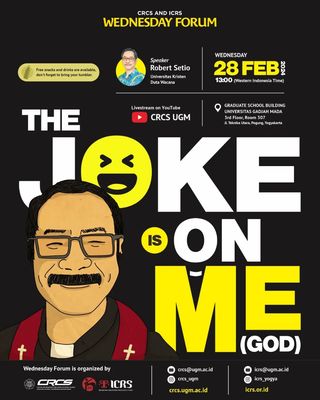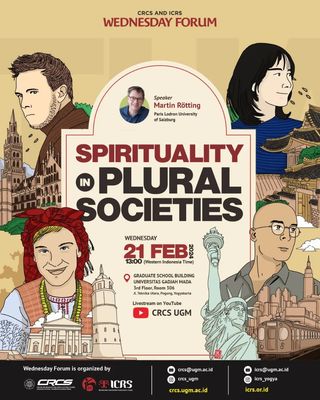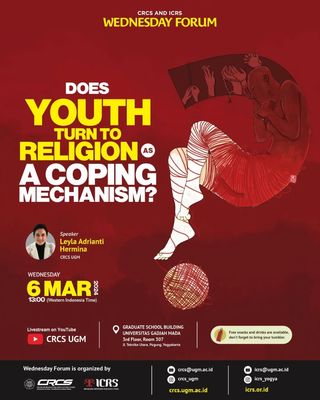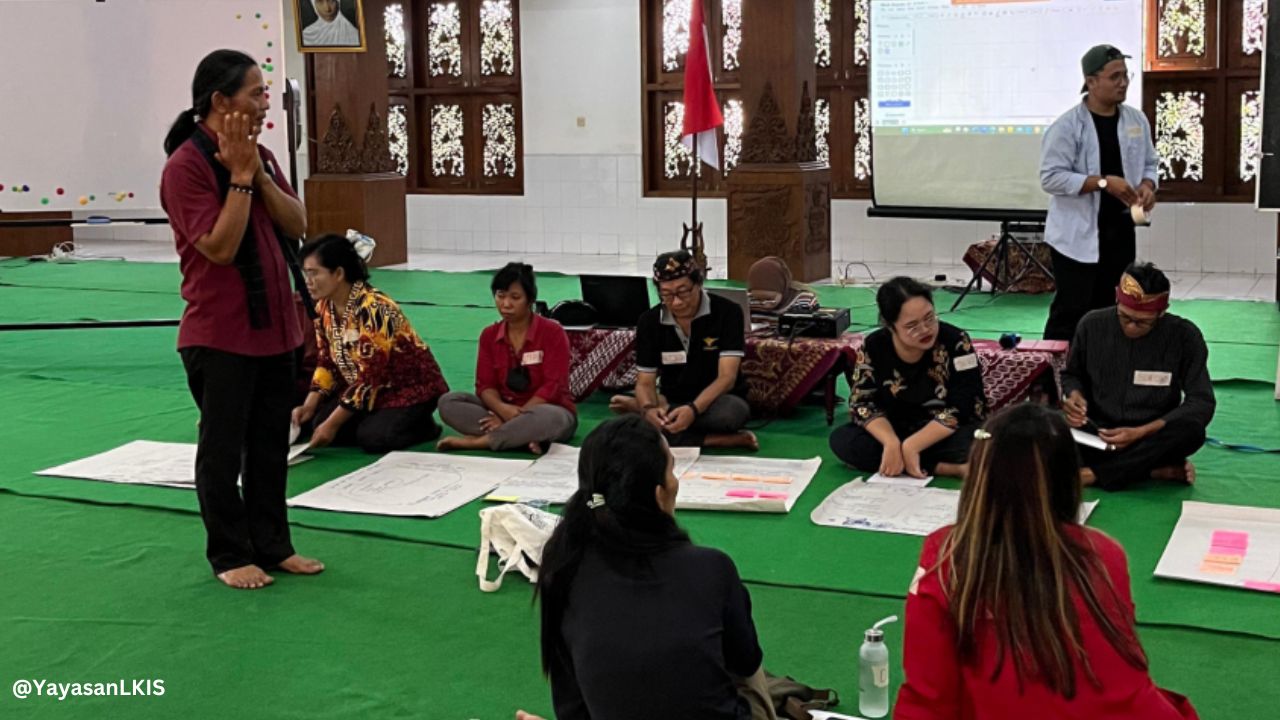
Angie Wuysang
Ecology needs to be deconstructed. This is Samsul Maarif's central thesis in his talk in the June edition of Monthly Conversation on Religion and Ecology. Claiming that ecology is an elite discourse that pervades people’s everyday life, Maarif argued that since the way nature is studied emerged together with humanism, the natural order and the social order thus need to be developed together. The examination of the discourse of ecology, in his opinion, should be started by engaging the everyday concerns of people, especially indigenous religious followers. His research was an elaboration of the practice of indigenous religion school, or the so-called Sekolah Agama Leluhur (SAL) which was initiated in 2023 in Yogyakarta, through which their everyday experiences, and cosmological framework is re-formulated as the basis of re-addressing the ecology. In essence, SAL aims, among others, to decolonize knowledge and empower adherents of ancestral religions while building a more inclusive society. Since its establishment last year, this school already has lesson modules although they are flexible and open to further challenges.
In its goals of decolonizing ecology, one ever-present fundamental question in the learning process as the school is, who are we living in this world? Who is the Self? In contrast to the hierarchical concept of god in the context of monotheistic religions, god in this Sekolah Agama Leluhur is strongly identified as Nature. As a fragment of Nature (God), then human beings are originated and part of It. It is the significance of the school’s curricula that to be religious is to beautify nature. Furthermore, he highlighted a framework of community-based ecological engagement as a complement to top-down approaches in responding to ecological challenges. In this case, the realm of praxis becomes the most important element of learning. The Sekolah Agama Leluhur has a Trilogy of Knowledge which is; that every human being has a common origin and a sublime final destination, which is to return to Nature (Sangkang Paraning Dumadi); each individual feels a sense of closeness and oneness with God in all aspects of life, which is reflected in daily behavior that is full of love and wisdom (Manunggaling Kawula Gusti), and that human beings have a role in maintaining natural and social harmony, as well as positive contributions in society to create a better world (Memayu Hayuning Bawono). The point of departure for the Trilogy is the realm of praxis; because, no knowledge without practice, and practice is from knowledge. Despite this, Maarif recognized that there have been challenges in the initiation and journey of the school. One of the challenges faced is that in terms of articulating knowledge, all can be well absorbed; but in the realm of praxis, they still encounter various difficulties.




